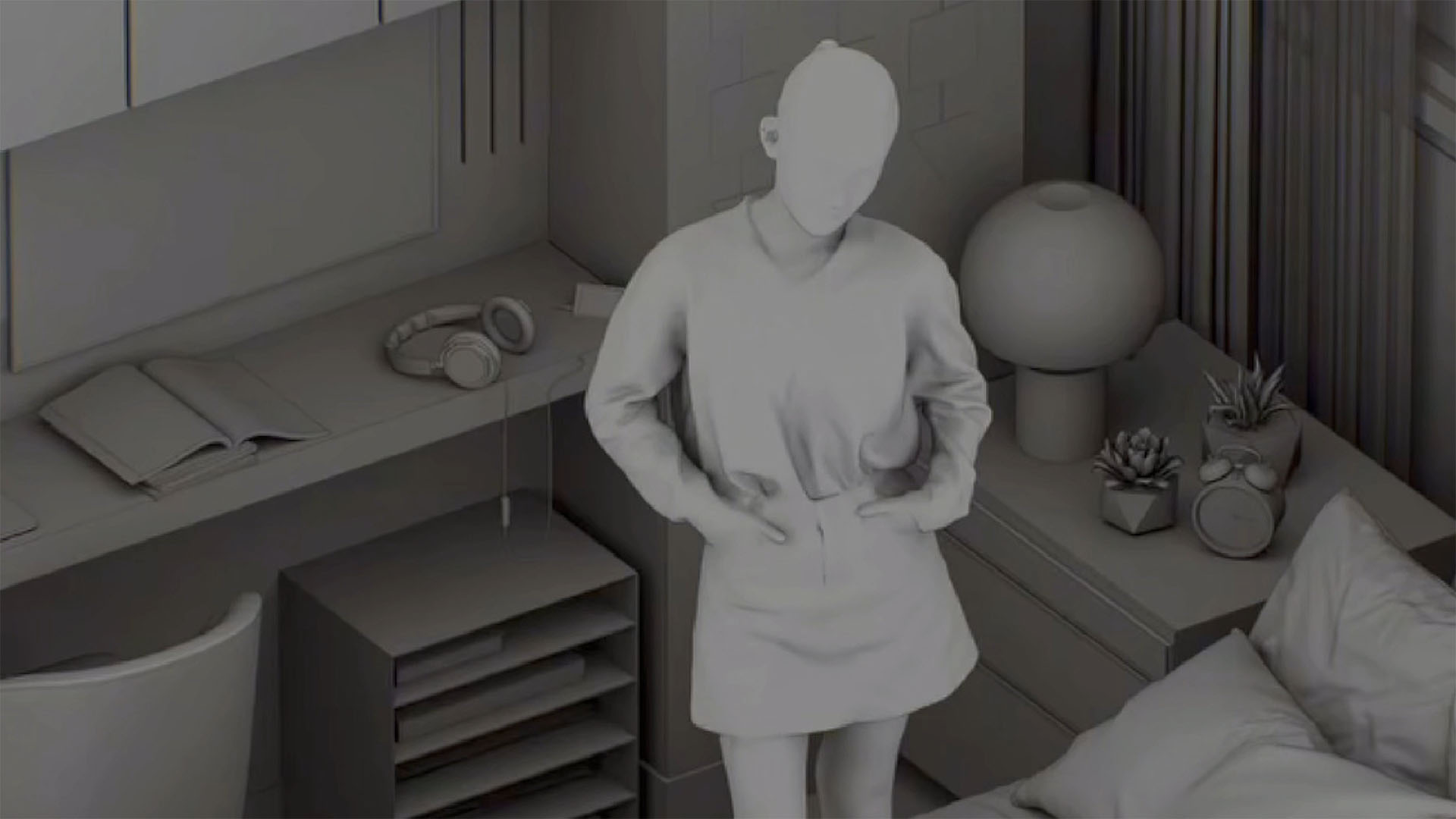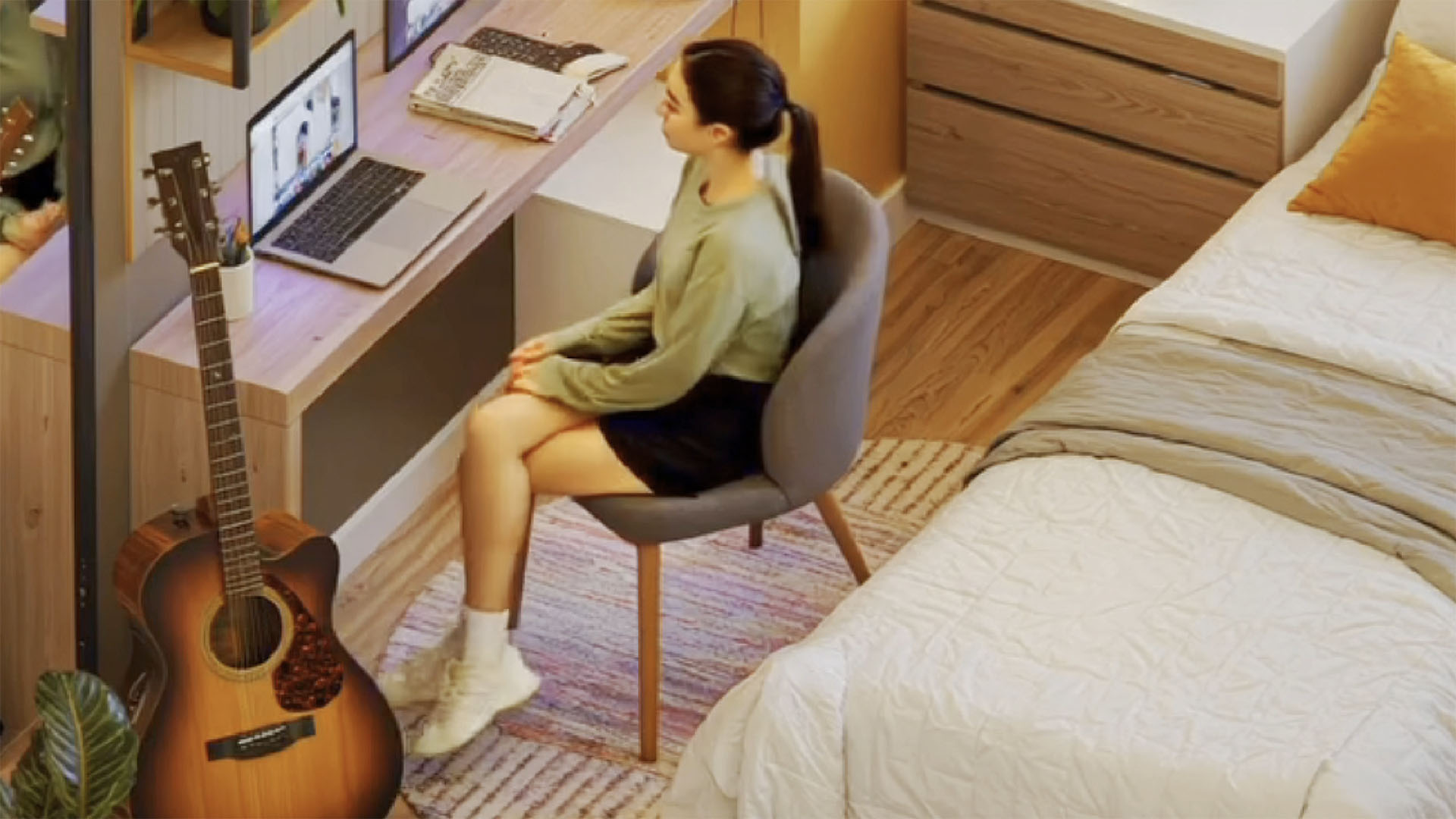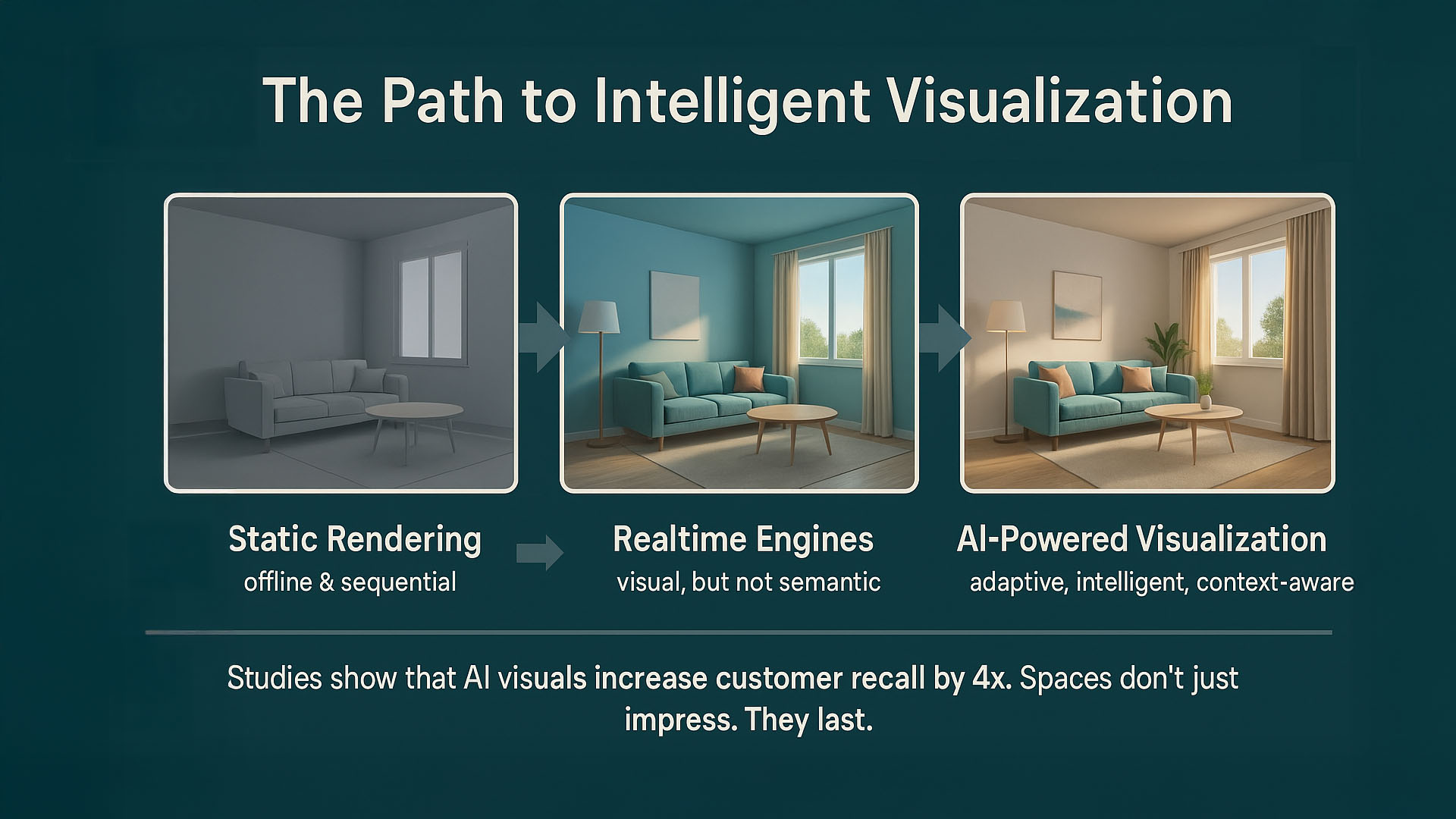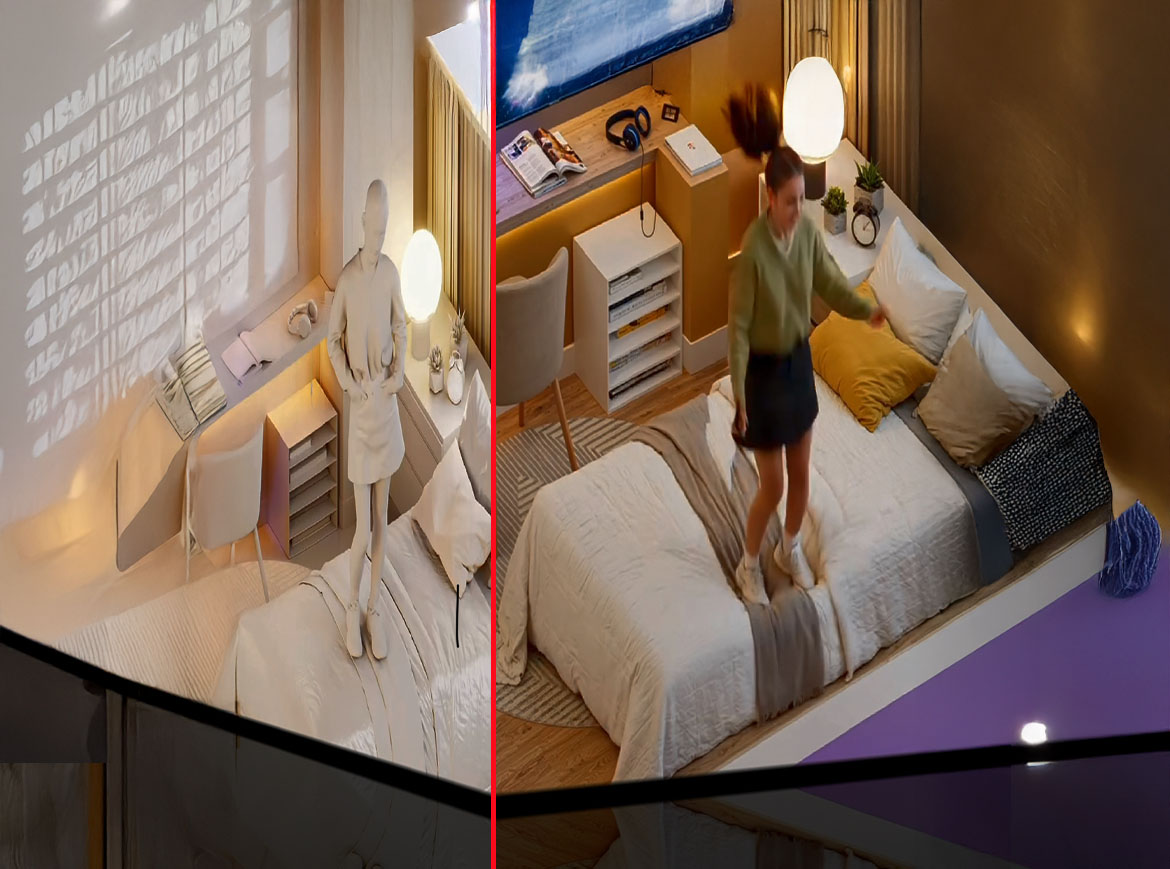How Artificial Intelligence Is Redefining the 3D Visualization Process
Visual: © cesarvilchezarq / D5 Render
From Static Model to Living Space
What used to take days of rendering cycles now happens in real time: AI-powered 3D engines transform simple geometries into atmospheric, photorealistic spaces – with just a few clicks.
Materials, lighting, mood, and spatial context are intelligently interpreted. The design process becomes faster, more flexible – and more emotional at the same time.
- Intelligent Material Logic: AI detects surfaces and adjusts them automatically
- Semantic Lighting: Lighting reacts to space usage and time of day
- Real-Time Preview: Iterations without export, directly in the creative flow
Architecture starts thinking – and visualization follows design.

Real-time scene with AI-controlled lighting atmosphere
Photo: © cesarvilchezarq / D5 Render
From Tool to Creative Partner – AI as Co-Author
The new engines don’t just execute – they understand. They analyze designs, suggest materials or lighting concepts, and help shape the space as an experience.
AI recognizes whether it’s a kitchen, a loft, or an office – and responds contextually. It becomes a partner in the creative process.
- Spatial Intelligence: Functional analysis for appropriate visualization
- Design Suggestions: Colors, lighting moods, and perspectives
- Adaptive Feedback: Real-time adjustments based on user interaction
What was once static is now dialogical – design becomes interaction.

Intelligent scene analysis and material suggestions
Photo: © cesarvilchezarq / D5 Render
Collaborative Real-Time Design – Across Disciplines
The engines open up new spaces for collaboration: designers, clients, and developers can interact with the space live, provide feedback, and explore variants – visually instead of verbally.
Whether interior design, automotive, or game design: decisions are made together, faster, clearer – and visually validated.
- Live Reviews: Feedback and changes in real time
- Multidisciplinary Use: Architecture, retail, exhibition design, XR
- Presentation & Storytelling: Spaces convey function and emotion
Visualization becomes a language – and everyone can read it.

Live design feedback with real-time rendering
Photo: © cesarvilchezarq / D5 Render
More Impact – In Less Time
The business advantages are clearly measurable: projects take less time, clients understand faster what they’re getting – and design gains emotional impact.
AI visualization is more than efficiency. It creates connection. And contributes to brand impact, sales, and experience.
- Pitch Power: Greater persuasive impact through immersive presentations
- Shorter Cycles: From concept to approval in hours instead of days
- Added Value for Clients: Co-creation instead of mere approval
Design becomes faster. But also more tangible.

Spatial atmosphere in client dialogue via live visual
Photo: © cesarvilchezarq / D5 Render
Infographic: The Path to Intelligent Visualization
The following graphic illustrates how visualization has evolved from post-production to a real-time co-creation tool:
- Phase 1: Static rendering – offline & sequential
- Phase 2: Real-time engines – visual but not semantic
- Phase 3: AI-driven visualization – adaptive, intelligent, context-aware
Studies show: AI visuals increase customer memory retention by a factor of four. Spaces don’t just impress. They last.

Development of visualization technology through AI
Infographic: Visoric News Room / Ulrich Buckenlei
Video: Architecture That Understands
The video shows an apartment adapting in real time – in lighting, surface, and spatial atmosphere. The engine interprets usage scenarios, simulates emotion – and creates atmosphere.
An example of the future of design: responsive space, immersive visualization, fluid design.
Reactive spatial visualization with AI and D5 Render
Video: © cesarvilchezarq / D5 Render
Contact Our Expert Team
The Visoric Team supports you in implementing AI-assisted visualization – whether in architecture, design, product development, or marketing.
- Consulting & Strategy: How to use AI + real-time efficiently
- Prototypes & Showcases: From vision to experiential space
- XR & Spatial Experiences: Interactive experiences for clients & teams
Contact us now – and let’s unlock visual intelligence together.
Contact Us:
Email: info@xrstager.com
Phone: +49 89 21552678
Contact Persons:
Ulrich Buckenlei (Creative Director)
Mobil +49 152 53532871
Mail: ulrich.buckenlei@xrstager.com
Nataliya Daniltseva (Projekt Manager)
Mobil + 49 176 72805705
Mail: nataliya.daniltseva@xrstager.com
Address:
VISORIC GmbH
Bayerstraße 13
D-80335 Munich


